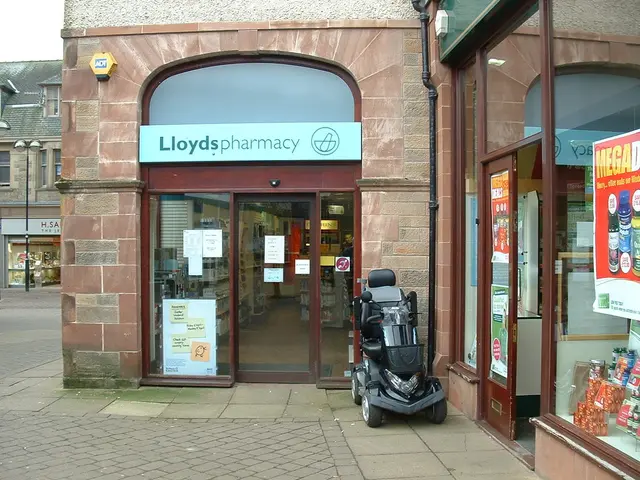Heart Valve Disease: Weighing Minimally Invasive vs. Traditional Heart Surgery
Revolution in Heart Valve Disease Treatment: Introducing Minimally Invasive Surgery for Lower Impact, Swifter Healing, and Improved Living Standards
In the realm of cardiovascular diseases, heart valve disease, notably Mitral Valve Disease and Aortic Valve Disease, stands among the leading causes of mortality worldwide. These conditions, often linked to age, genetics, infections, and chronic illnesses, place an undue strain on the heart, particularly for individuals aged 40 and above who are frequently battling hypertension and hyperlipidemia. When confronted with these ailments, Dr. Siam Khajarern, a renowned Cardiothoracic Surgeon at Ramathibodi Hospital, outlines two treatment avenues: the conventional open-heart surgery and the minimally invasive counterpart.
The Faceoff: Standard vs. Minimally Invasive Heart Surgery
Traditional Open-Heart Surgery
This established method of treatment involves a 15-20 cm incision in the chest and cutting the breastbone for access and surgical intervention. Whilst boasting an impressive safety record and long-term success, it does come with a recovery period of around three months before a return to normal life can be achieved.
Minimally Invasive Heart Surgery (MIS)
This advanced technique has gained ground for its decreased invasiveness, expedited recovery, and speedy return to daily activities. MIS employs smaller surgical incisions and specialized instruments and cameras for precise surgical interventions, thereby minimizing tissue and organ trauma, lowering the risks of infection, blood loss, and facilitating faster recovery.
It's essential to note that while MIS is growing in popularity, it may not always be the optimal choice. Complex comorbidities or emergency conditions may necessitate the more recognized traditional surgery. Furthermore, proficiency in MIS requires a skilled surgical team with extensive training and experience – a minimum of 50-120 cases – to ensure patient safety and therapeutic efficacy comparable to open-heart surgery.
KEY TAKEAWAY: The choice between conventional open-heart surgery and minimally invasive heart surgery depends on the patient's unique situation, substantial evaluation, and the surgeon's extensive expertise in MIS.
For a balanced comparison of the two techniques, consider the following points:
Minimally Invasive Heart Surgery
Advantages:- Accelerated Recovery: Smaller incisions and minimal tissue damage quicken the recovery process compared to open-heart surgery.- Lower Infection Risk: Smaller incisions diminish the exposure of internal organs to the external environment, thereby reducing the risk of infection.- Reduced Discomfort: Due to its less invasive nature, patients experience significantly less post-operative discomfort.- Fewer Complications: Procedures such as TAVR (Transcatheter Aortic Valve Replacement) and MitraClip lessen the chance of significant complications like severe bleeding and right heart failure typically associated with more invasive surgeries.
Disadvantages:- Specific Requirements: Minimally invasive procedures are not applicable for all patients; they are usually recommended for those with particular conditions or high-risk profiles for open surgery.- Technical Challenges: These procedures demand specialized skill and equipment, which may vary in availability.- Device-Related Complications: While rare, there exists a risk of device migration or other device-related complications.- Potential Need for Additional Procedures: Certain minimally invasive procedures may necessitate additional interventions, such as pacemaker implantation in the case of TAVR.
Conventional Open-Heart Surgery
Advantages:- Adaptability: Open-heart surgery can be implemented across a wide range of patients, including those for whom minimally invasive options are deemed incompatible.- Direct Visualization: Surgeons have unobstructed views of the heart, enabling more complex repairs or multiple procedures during a singular surgery.
Disadvantages:- Lengthy Recovery: Recovery from open-heart surgery is more protracted due to larger incisions and extensive tissue disruption.- Heightened Infection Risk: Larger incisions enhance the risk of infection and complications.- Enhanced Discomfort: Patients usually experience more post-operative pain and discomfort compared to minimally invasive procedures.- Increased Complication Risk: There exists a greater risk of significant complications such as bleeding and heart failure.
InSummary:Ultimately, health care providers' comprehensive evaluation of the patient's condition and overall health, combined with the surgeon's experience in MIS, plays an essential role in determining the best treatment approach for heart valve disease.
- Heart valve diseases like Mitral Valve Disease and Aortic Valve Disease are significant in the economy, causing increased healthcare expenditure and impacting individuals' lifestyle and mental health.
- The field of science, especially medical-conditions, neurology, and therapies and treatments, has shown great advancement in addressing heart valve diseases with methods like Transcatheter Aortic Valve Replacement (TAVR) and MitraClip in minimally invasive heart surgery (MIS).
- In politics, policy decisions regarding the allocation of resources for healthcare and research to combat heart valve diseases are crucial, considering their impact on society and the economy.
- As part of the health-and-wellness movement, understanding the benefits of minimally invasive heart surgeries, such as quicker recovery times and reduced discomfort, can inspire more people to prioritize their cardiovascular health and seek preventive care.
- In the realm of finance, individuals should consider investing in the stock market, looking for companies that specialize in offering medical-grade instruments and technologies for minimally invasive heart surgeries.
- For health consciousness and fitness-and-exercise enthusiasts, maintaining cardiovascular health through regular exercise, a balanced diet, and stress management can potentially minimize the risk of developing heart valve diseases and the need for extensive treatments like traditional open-heart surgery.
- Additionally, advancements in the medical field, such as the use of CBD products for stress and anxiety management, may indirectly contribute to better mental health, reducing the psychological toll of living with heart conditions, the implications of surgery, and the anxious wait for recovery.








